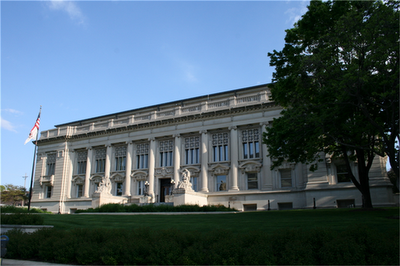 The Illinois Supreme Court has shot down a controversial practice that was the norm in the state’s juvenile courts for years, despite outcry that minors were not being treated fairly under state laws meant to protect their status as juveniles.
The Illinois Supreme Court has shot down a controversial practice that was the norm in the state’s juvenile courts for years, despite outcry that minors were not being treated fairly under state laws meant to protect their status as juveniles.
The court found that a lawyer’s second role as a guardian ad litem—an advocate for minors in court proceedings who pledges to act in the child’s “best interest”—may have inhibited him from providing his client with a zealous defense in a sexual abuse case.
Austin M.’s conviction was overturned by the court, which cited that a per se, or inherent, conflict of interest occurred when his lawyer decided to act as a guardian ad litem and declared that he was seeking the truth, “the same as the court and the same as the prosecutor.”
Some legal experts hailed the decision saying it was clear-cut under the due process clause and legal precedents in juvenile delinquency cases.
“Lawyers have a duty of confidentiality, a loyalty to their client that is compromised when they wear two hats; to begin to think of [themselves] as a ‘best interest’ lawyer,” said Marsha Levick, deputy director of the Juvenile Law Center in Philadelphia.
Lawyers are either appointed by the court as guardians ad litem for their juvenile clients or choose to identify themselves as such, usually when the defendant’s parents do not appear during trials.
In many cases, a lawyer’s role as a guardian ad litem will override traditional attorney-client privileges like confidentiality, Levick said. With this decision, the court separated the two roles and endorsed zealous lawyering for kids, she said.
“To treat [juvenile delinquency] proceedings as anything other than adversarial proceedings, I think just really devalues the importance of these cases,” Levick said.
The defendant, Austin M., was 16 when he was charged with misdemeanor sexual abuse in 2006. The same lawyer represented Austin and his then 15-year-old brother, who was charged with the same crime but later acquitted for lack of evidence. Hybrid representation is common in Cook County courts and more widespread in Illinois than in other states, said Bruce Boyer, a law professor at Loyola University in Chicago. He said courts want to save money by having lawyers wear both hats.
“In Illinois we are exceptionally tolerant of conflicts of interests, mostly because of finances,” Boyer said.
Just weeks before the state Supreme Court agreed to review Austin’s case, it rejected an appeal by a defendant who claimed that he had been denied his right to counsel because his lawyer - identifying himself also as a guardian ad litem - advocated against the child’s desire to stay at his mother’s home.
Sometimes juvenile defendants in Cook County aren’t given attorneys until after their initial hearing or after several days of trial, Boyer said.
Outrage erupted in 2009 when two Pennsylvania county judges plead guilty to charges of placing children in detention centers in exchange for kickbacks from the facilities’ owners. Hundreds of children appeared in court without counsel and were often convicted for minor offenses and transferred to out-of-home placements.
Children in delinquency proceedings have the same rights as adult criminal defendants (except for the rights to bail and a jury trial), as established by a landmark U.S. Supreme Court decision in 1967. In the recent decision, the Illinois Supreme Court said that the counsel Austin received at trial was not the type guaranteed by the due process clause and the Illinois Juvenile Court Act.
The Illinois ruling came a few days after another sharp change to juvenile justice in the state. Gov. Pat Quinn, a Democrat, signed a new law that allows school officials to inspect and copy the criminal records of minors who have been arrested or are under investigation, drawing criticism from child advocates and civil liberties groups.
But Levick said she thinks the state high court’s ruling is a step forward to ensuring the rights of children on trial.
“The decision recognizes that juvenile delinquency proceedings are high stake proceedings, that they can carry very significant consequence all the way into adulthood for some of these kids,” she said.
The Illinois Supreme Court ordered that Austin be retried in circuit court.

Juveniles need to win in order to be productive members of society. Eventually, everyone will be able to stand for their rights once they are mature. You don’t want them to be in DUI courtroom, once these juveniles are grown.